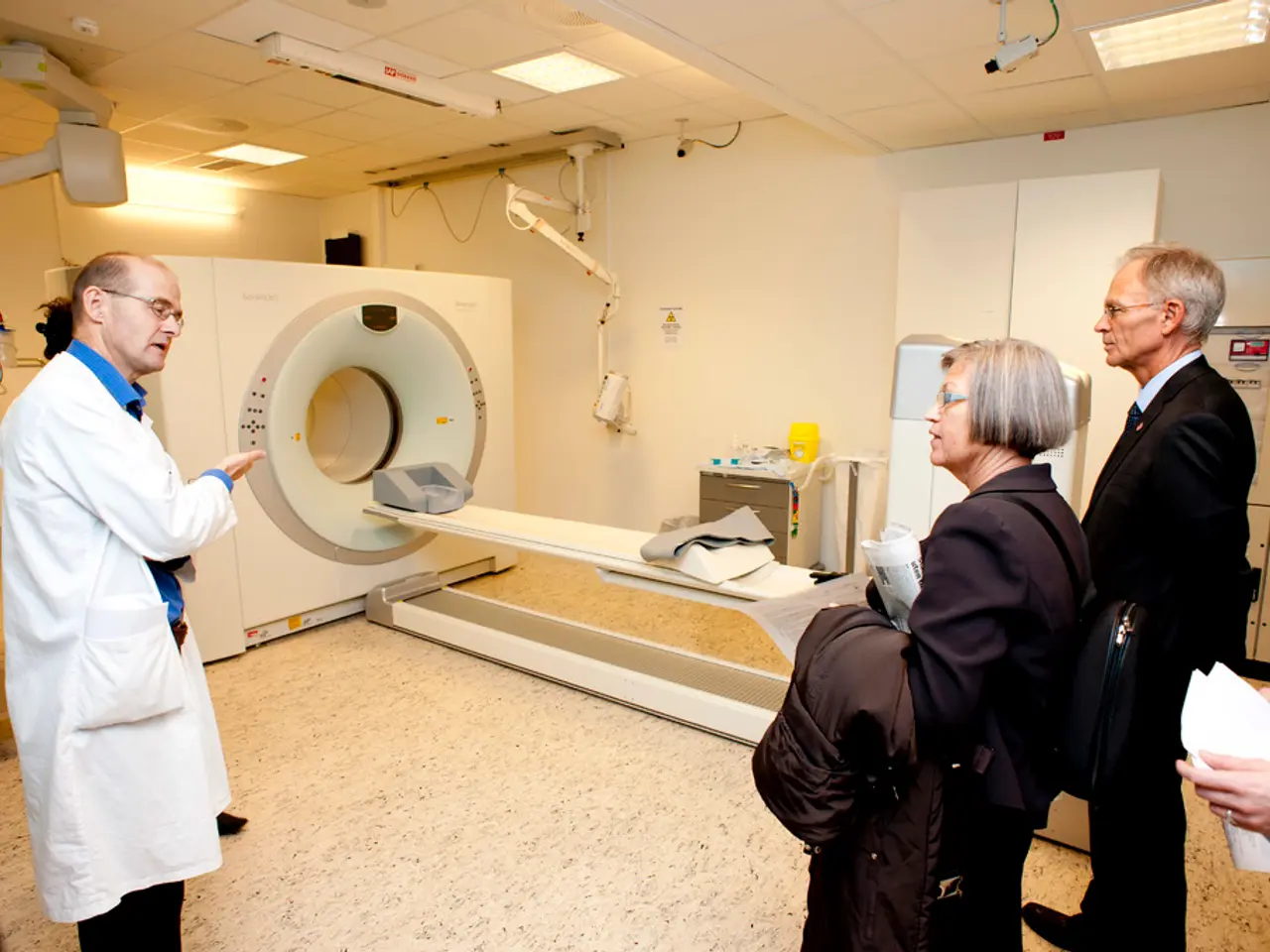Alarming Alert: The Urgent Need for Senior Care Institutions to Focus on Health Information Technology
The National Academies of Sciences, Engineering, and Medicine recently released a comprehensive report on improving nursing home quality, highlighting the need for better health IT standards in senior care facilities.
The report, released in April 2022, calls for a three-pronged approach to nursing home improvement: addressing the workforce crisis, funding quality care, and applying evidence-based quality improvement and measurement. A key aspect of this approach is the improvement of health IT standards in nursing homes.
The report recommends adopting health information technology in all nursing homes to better support care quality, resident outcomes, and operational efficiency. The Moving Forward Nursing Home Quality Coalition, formed to prioritize and implement these recommendations, is focusing on resident-centered tools and enhanced data systems for effective quality improvement.
Enhancing interoperability and data sharing among nursing homes, healthcare providers, and public health systems is crucial to improve care coordination and emergency preparedness. Deploying resident-centered health IT tools that support clinical decision-making and monitor health status in real time is also essential.
Strengthening data capabilities for quality measurement, infection control, and behavioral health needs is another key aspect. The report links behavioral health support gaps to systemic nursing home challenges, making data capabilities a vital component of any nursing home improvement strategy.
Integrating these recommendations into a broader federal framework aimed at advancing science, technology, and health policy in nursing home care is necessary for systemic improvements to nursing home infrastructure, including their health IT systems.
Katie Smith Sloan, CEO of LeadingAge, stated that the report serves as a "piercing wake-up call" for policymakers. The report suggests financial incentives for nursing homes to adopt interoperability-certified Electronic Health Records (EHRs) from the Office of the National Coordinator for Health Information Technology (ONC) and the Centers for Medicare & Medicaid Services (CMS).
The U.S. Department of Health and Human Services should develop a way to measure and report on health IT adoption and interoperability in nursing homes. CMS and the Health Resources and Services Administration should provide financial support for ongoing workforce training in health IT for nursing home leadership and staff.
The lack of interoperability in senior care IT is a concern for long-term and post-acute care providers. EHR interoperability is a major concern for Program of All-Inclusive Care for the Elderly providers. ONC and the Agency for Healthcare Research and Quality should fund studies to explore health IT's use in improving nursing home resident outcomes and clinician, resident, and family perceptions of health IT usability.
The time for immediate action on interoperability in long-term and post-acute care is now. Follow updates on the LeadingAge Annual Meeting + EXPO at @HealthTechMag on Twitter and #LeadingAge22 for more insights on this important topic.
Related articles on the topic can be found on the website. The 2022 LeadingAge Annual Meeting + EXPO takes place Oct. 16-19 in Denver. This event promises to be a valuable platform for further discussions on improving nursing home quality through health IT standards.
- To improve nursing home quality, the report suggests integrating evidence-based quality improvement and measurement, which includes adopting resident-centered health IT tools in all nursing homes to support care quality, resident outcomes, and operational efficiency.
- The Moving Forward Nursing Home Quality Coalition is focusing on resident-centered tools and enhanced data systems for effective quality improvement, underlining the importance of strengthening data capabilities for quality measurement, infection control, and behavioral health needs.




